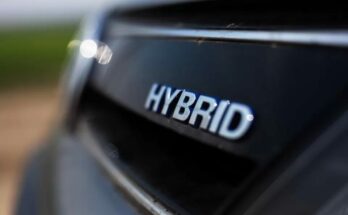Time and time journalists & researchers have pointed out the malpractices in the auto sector, especially regarding the on-money (own/ premium). During all these years, policymakers made some cosmetic measures to show they are serious to curb this menace, but no concrete measure has ever been taken to tackle the devil.
Related: 90% of Cars in Pakistan are Sold at Premium/ Own/ On Money- Research
Recently, a Pakistan Institute of Development Economics (PIDE) research-based article was published in Dawn highlighting yet again the core auto sector problem that has existed for ages. The research reveals that auto consumers in Pakistan pay more than Rs 35 billion annually as ‘own-money’ over and above the price for quicker delivery of vehicles. Own money can be defined as a black-market premium that is collected predominantly by auto manufacturers (assemblers), new car dealers, and their friends as speculators and insider traders.
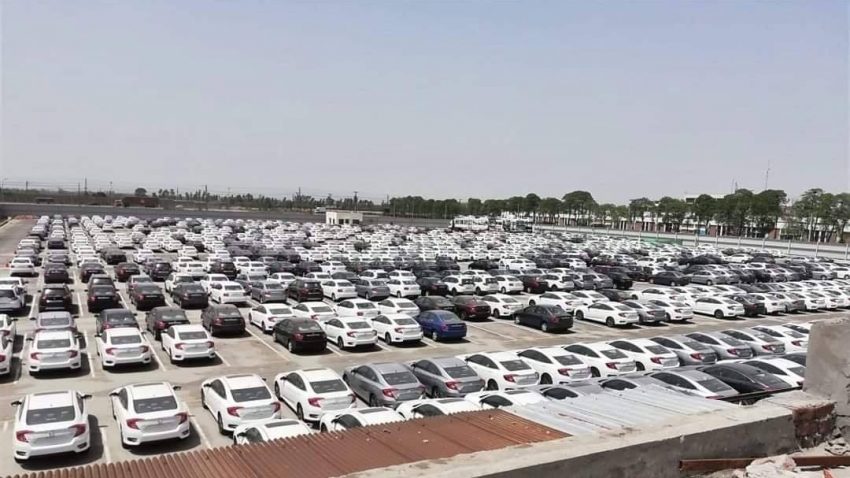
Own stems primarily because of two factors: low supply of vehicles and advanced booking. Economic theory says that monopolists will supply less than market demand even if it means retaining spare capacity on hand. In keeping with this practice, car assemblers have a capacity of 400,000 units but produce only 200,000 a year, ensuring that a shortage prevails in the market.
Related: Delivery Delays are Nothing Less Than a Blessing for Assemblers
Ironically, when some import (of used automobiles) is allowed, even if it is in the baggage scheme, car manufacturers lobby to put in restrictions to ensure that there is excess demand in the market and yet fail to expand production. Even at a higher duty than our local cars, imported used cars are desirable and have the tendency to immediately kill the own.
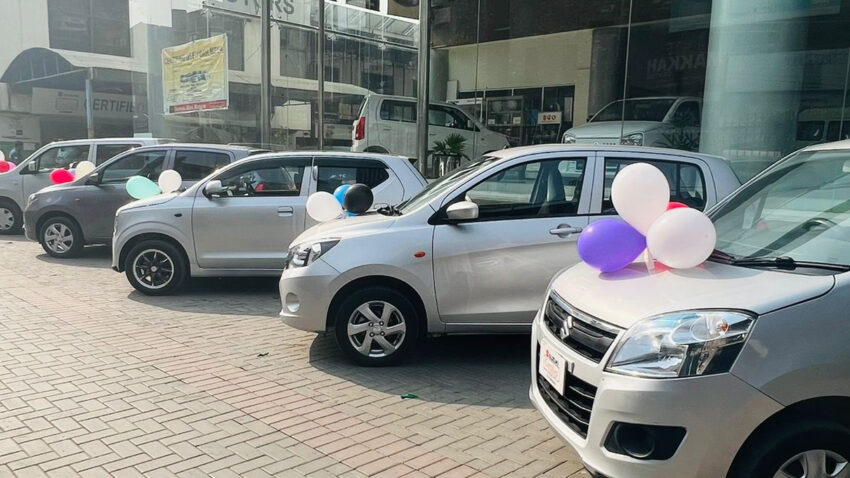
Apparently, our infant auto industry, even after 50 years of protection, cannot even produce a car to compete with a used car in terms of quality and features. This is what a protected oligopoly does. When imports are stopped, the local assemblers have a field day. And instead of expanding production, they expand booking i.e., collect excess orders to provide themselves with working capital and develop a long queue to maximize own. As a result, consumers book cars with no guarantee of availability date and no price guarantee as well.
Related: Woeful Delivery Periods of Local Assembled Cars in 2022
Interestingly, they take our money in full and guarantee neither delivery date nor price. Assemblers and dealers are free to increase prices on any pretext while holding the consumer’s money. Own money has gone on for 50 years and no ministry/government agency regulates it. No one reviews this undocumented economy that sucks up investment funds. The parliament or cabinet has never debated this issue either.
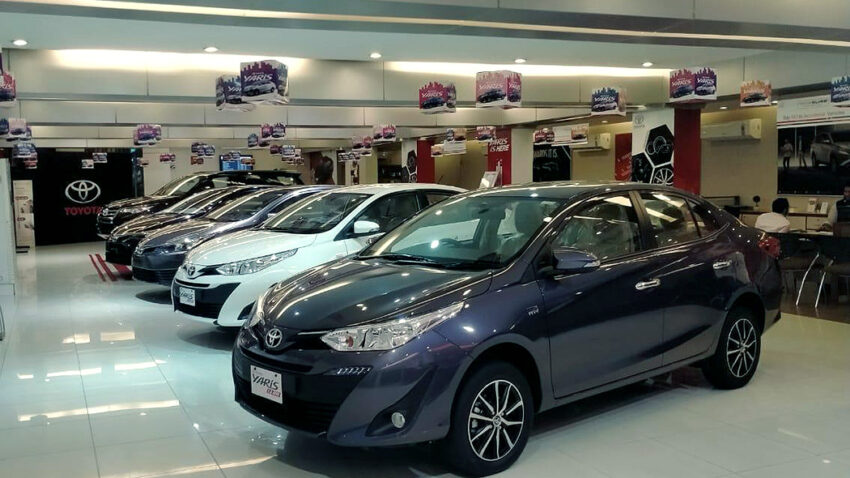
Sadly, even the consumers have no voice in this system. But what can be done to make a car market and move away from a black market that prevails? Well, the research suggests:
- Advanced booking must have some rules generally applied to contracts. First, delivery time limits should be imposed of no more than a month at the cost of penalties. Secondly, the price at the time of booking must be considered the final price.
- Assemblers must operate at a minimum of 80% capacity to ensure that periods of excess demand do not last for more than four weeks. The size of the own can easily measure this.
- While disallowing companies to collect advances for bookings of vehicles, the dealers must also not be permitted to commit to the sale of any vehicle that is not available at their dealership. The dealers are the main players and stakeholders in the collection of own money premium and must be dealt with accordingly per the law to curb this exploitation of the consumers.
Related: Has Pakistan’s Auto Policy Benefited the Masses?
Ultimately it is government policy that has been hostage to assemblers for the last 50 years. An automobile market has not been created because of flawed government policy that seeks the impossible goal of local car manufacturing under heavy protection. Assemblers have no incentive to export or develop a normal car industry when they have a captive market.
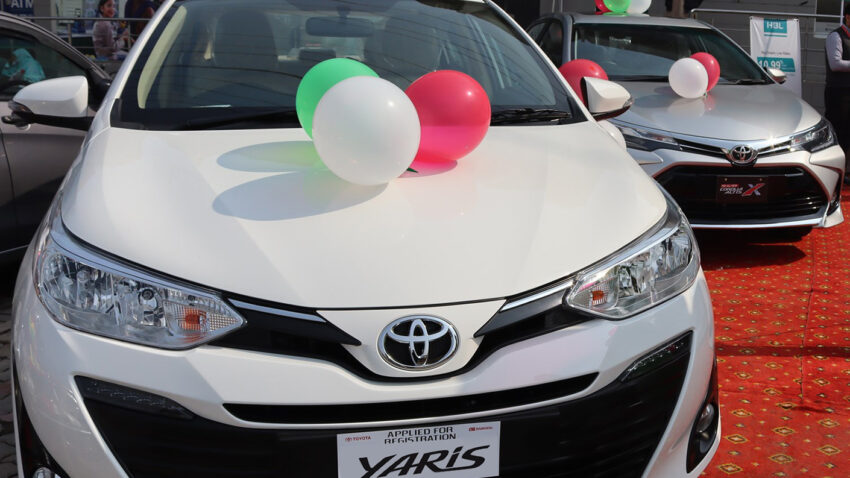
It is time we understood that protection ruins kids. Every kid must be allowed to compete in school free of parental protection. Likewise, the government has been told many times that all markets require openness on the import and export sides. Yet the assemblers end up having their way of claiming own.
Related: Economic Advisory Group Says Auto Policy is Damaging for Consumers
The government must allow imports selectively. Tariff differential between imported and assembled cars already gives an edge to local assemblers. Besides, imports generate tariff revenue and not a substantial decrease in foreign exchange, as the difference in the cost of assembly kits and the price of a new car is not significant.
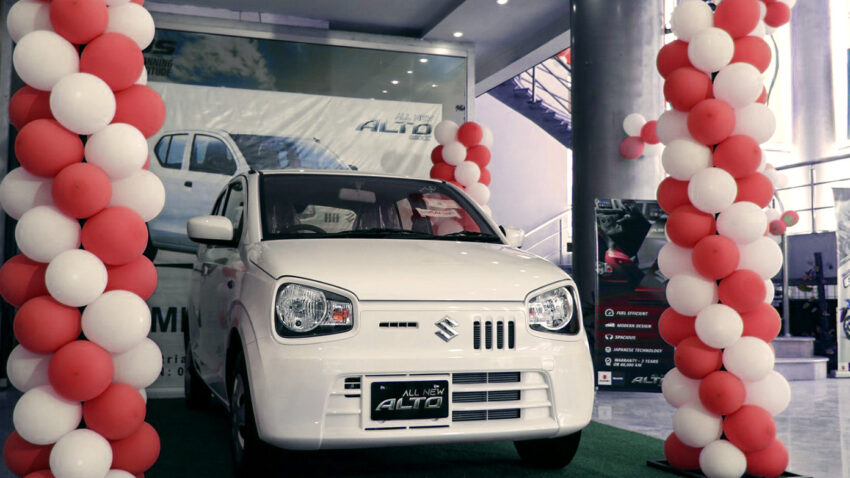
There has been inertia in the car industry for the last 20 governments. It seems that there is no analytical capacity to analyze this complex problem anywhere in the government. Yet consumers are being taxed heavily. At the minimum, this tax on consumers — the own premium on poor-quality cars — should be added to the tax calculation to show that our tax-to-GDP ratio is not as bad as they say.
This article was originally published in Dawn- The Racket of Own Money
It has been published here upon seeking permission from the author(s) Nadeem ul Haque and Mohammad Shaaf Najib of PIDE

A computer animation professional with over 23 years of industry experience having served in leading organizations, TV channels & production facilities in Pakistan. An avid car enthusiast and petrolhead with an affection to deliver quality content to help shape opinions. Formerly written for PakWheels as well as major publications including Dawn. Founder of CarSpiritPK.com



